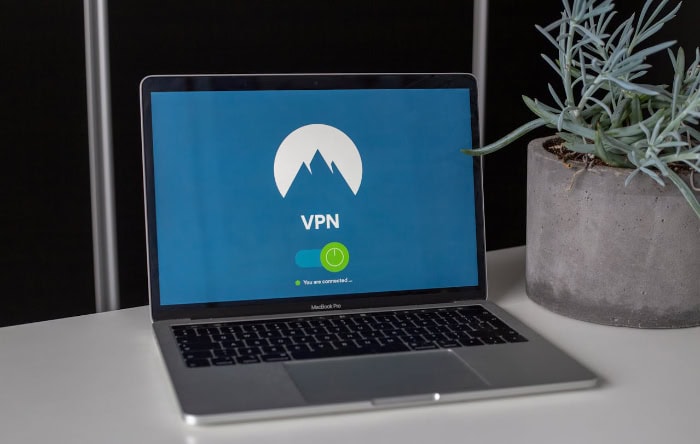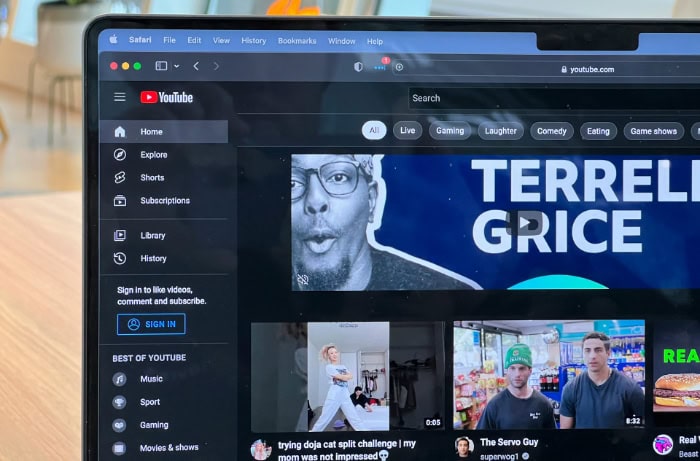How to Fix “This Video is Unavailable in Your Country”

You’re eagerly anticipating the latest episode of your favorite show, only to be met with a frustrating message: “This video is unavailable in your country.” Geo-restrictions, the bane of many internet users, can put a damper on your online entertainment experience.
These digital barriers, often imposed by content providers due to licensing agreements or legal requirements, leave you feeling left out of the global media landscape. But fear not! There are ways to circumvent these restrictions and access the content you desire.
Understanding Geo-restrictions
In the modern digital age, access to online content is often taken for granted. However, many internet users encounter a frustrating barrier known as geo-restrictions.
These digital blockades prevent individuals from accessing certain websites, videos, or services based on their geographical location.
What Are Geo-restrictions?
Geo-restrictions, also known as geo-blocking, refer to the practice of limiting access to online content based on a user’s geographic location. When you attempt to access a website or stream a video, the content provider checks your IP address to determine your location.
If you’re situated in a region where the content is restricted, you’ll be denied access and presented with an error message.
Why Do Content Providers Use Them?
Content providers, such as streaming platforms and websites, implement geo-restrictions for various reasons. One of the primary motivations is to comply with licensing agreements and copyright laws.
Media companies often have different distribution rights for their content in different countries. To avoid legal issues and maintain these agreements, they restrict access to specific regions.
Another reason for geo-blocking is to tailor content to specific markets. Some services may offer different content libraries or pricing based on the user’s location.
This allows them to cater to local preferences and compete with regional competitors.
Additionally, geo-restrictions can be used to manage server load and bandwidth. By limiting access to certain regions, content providers can ensure a better user experience for their target audience and avoid overloading their servers.
Common Platforms and Services Affected
Geo-restrictions are prevalent across various online platforms and services. Streaming giants like Netflix, Hulu, and Amazon Prime Video are well-known for their geo-restricted content libraries.
Each country has its own catalog of movies and TV shows, determined by licensing agreements with content owners.
YouTube, the world’s largest video-sharing platform, also employs geo-restrictions. Some videos may be blocked in certain countries due to copyright claims, regional content policies, or the uploader’s preferences.
Music streaming services, such as Spotify and Apple Music, may have variations in their song catalogs based on location. Certain tracks or albums might be unavailable in specific regions due to licensing restrictions.
Even websites and online services can be affected by geo-blocking. Some online stores, gaming platforms, and news websites may restrict access to users from certain countries.
This can be due to legal requirements, content rights, or targeted marketing strategies.
Using VPNs to Bypass Restrictions

One of the most popular and effective methods to circumvent geo-restrictions is by using a Virtual Private Network (VPN). VPNs have gained significant traction among internet users who wish to access content that is otherwise unavailable in their region.
How VPNs Work
A VPN is a tool that encrypts your internet connection and routes it through a remote server, masking your real IP address and location. When you connect to a VPN server in a different country, you are assigned a new IP address from that location. This makes it appear as if you are accessing the internet from that country, allowing you to bypass geo-restrictions and access content that would otherwise be blocked.
VPNs create a secure tunnel between your device and the internet, ensuring that your online activities remain private and protected from prying eyes. This encryption also helps safeguard your data from hackers and cybercriminals when using public Wi-Fi networks.
Choosing a Reliable VPN Service
With numerous VPN providers available in the market, selecting a reliable service is crucial. Some reputable VPN services include NordVPN, Mullvad, and Windscribe. When choosing a VPN, consider factors such as:
- Server locations: Look for a VPN with a wide network of servers in various countries, especially in regions where the content you wish to access is available.
- Connection speed: Choose a VPN that offers fast and stable connections to minimize buffering and ensure a smooth streaming experience.
- Privacy and security: Opt for a VPN with strong encryption protocols, a strict no-logging policy, and additional security features like a kill switch and DNS leak protection.
- User-friendly interface: Select a VPN with a user-friendly app that is easy to navigate and compatible with your devices.
- Customer support: Consider a VPN provider that offers reliable customer support to assist you with any technical issues or queries.
Setting Up and Using a VPN
Setting up a VPN is a straightforward process. Most VPN providers offer user-friendly apps for various devices, including smartphones, tablets, and computers.
Here’s a general overview of the steps involved:
- Sign up for a VPN service and create an account.
- Download and install the VPN app on your device.
- Launch the app and log in using your credentials.
- Select a server location where the content you want to access is available.
- Connect to the VPN server and wait for the connection to be established.
- Once connected, you can browse the internet and access content as if you were in the selected country.
Potential Drawbacks of VPNs
While VPNs are an effective tool for bypassing geo-restrictions, there are some potential drawbacks to consider:
- Reduced connection speed: Routing your internet traffic through a VPN server can sometimes result in slower connection speeds, especially if the server is geographically distant or experiencing high traffic.
- Subscription costs: Most reliable VPN services require a paid subscription. While there are free VPN options available, they often come with limitations such as slower speeds, data caps, and fewer server locations.
- Compatibility issues: Some websites and streaming platforms have implemented VPN detection mechanisms, which can block access even when using a VPN. In such cases, you may need to try different servers or VPN protocols to find a working solution.
- Privacy concerns: While reputable VPN providers prioritize user privacy, some free or less trustworthy services may log your online activities or sell your data to third parties. Always read the privacy policy and terms of service before signing up for a VPN.
Despite these potential drawbacks, VPNs remain a popular and effective method for bypassing geo-restrictions and accessing content from around the world.
Alternative Methods for Accessing Blocked Content

While VPNs are a popular choice for bypassing geo-restrictions, they are not the only solution available. There are several alternative methods that can help you access blocked content, each with its own advantages and limitations.
Proxy Servers: Types and Usage
Proxy servers act as intermediaries between your device and the internet. When you connect to a proxy server, your internet traffic is routed through it, masking your real IP address.
There are different types of proxy servers, including HTTP proxies, SOCKS proxies, and transparent proxies.
HTTP proxies are commonly used for web browsing and can be easily configured in your browser settings. SOCKS proxies offer more flexibility and can handle various types of traffic, including web browsing, email, and file transfers.
Transparent proxies are often used by organizations to monitor and control internet access within their network.
To use a proxy server, you need to find a reliable proxy provider and configure your browser or application to use the proxy settings. Keep in mind that free proxy servers may be slow, unreliable, and potentially compromise your privacy.
Smart DNS Services
Smart DNS services are another option for accessing geo-restricted content. Unlike VPNs, which encrypt your entire internet connection, Smart DNS services only route specific traffic related to geo-restricted content through their servers.
When you use a Smart DNS service, your DNS requests are redirected to a server in a location where the content is available. This allows you to access the content without changing your IP address or encrypting your traffic.
Smart DNS services are often faster than VPNs since they don’t encrypt your data. However, they do not provide the same level of privacy and security as VPNs, and they may not work with all devices or services.
Tor Network
The Tor network is a free, open-source software that enables anonymous communication and browsing. When you connect to the Tor network, your internet traffic is encrypted and routed through a series of volunteer-operated servers, making it difficult to trace your online activities.
While the Tor network is primarily designed for privacy and anonymity, it can also be used to access geo-restricted content. By connecting to the Tor network and using the Tor Browser, you can bypass censorship and access websites that may be blocked in your region.
However, using the Tor network for streaming or accessing large files may be slow due to the multiple layers of encryption and the limited bandwidth of the volunteer-run servers. Additionally, some websites and services may block traffic from the Tor network.
Legal and Ethical Considerations

While bypassing geo-restrictions may seem like a harmless way to access content, it is important to consider the legal and ethical implications of doing so.
Copyright Laws and Content Licensing
Copyright laws protect the rights of content creators and owners, giving them control over how their work is distributed and accessed. When content providers impose geo-restrictions, it is often due to licensing agreements that limit the distribution of content to specific regions.
Bypassing geo-restrictions to access copyrighted content without permission may be considered a violation of copyright laws. In some cases, it could be viewed as copyright infringement, which can lead to legal consequences.
It is important to respect the rights of content creators and owners, and to understand that geo-restrictions are often put in place to comply with legal obligations and agreements.
Terms of Service Violations
When you sign up for a streaming service or online platform, you agree to their terms of service (ToS). These terms outline the rules and conditions for using the service, including any restrictions on accessing content from different regions.
Bypassing geo-restrictions using VPNs, proxy servers, or other methods may be considered a violation of the service’s ToS. Some platforms explicitly prohibit the use of tools to circumvent geo-blocking, and doing so could result in the termination of your account or other penalties.
It is crucial to read and understand the ToS of any service you use and to be aware of the potential consequences of violating these terms.
Potential Consequences of Bypassing Geo-restrictions
Bypassing geo-restrictions may seem like a victimless act, but it can have real consequences. In addition to potential legal issues and ToS violations, there are other risks to consider:
- Malware and security threats: Some free VPNs, proxy servers, or browser extensions may contain malware or expose your device to security vulnerabilities.
- Privacy concerns: Untrustworthy VPN providers or proxy servers may log your online activities or sell your data to third parties, compromising your privacy.
- Slow connection speeds: Routing your internet traffic through additional servers can result in slower connection speeds, affecting your streaming quality and overall online experience.
- Limited access: Some streaming services and websites are actively working to detect and block VPNs and other tools used to bypass geo-restrictions, which may limit your ability to access content even when using these methods.
It is important to weigh the potential risks and consequences before deciding to bypass geo-restrictions.
Advocating for Open Internet Access
While bypassing geo-restrictions may provide a temporary solution, it does not address the larger issue of content accessibility and the open internet. Many advocates argue that geo-blocking practices limit cultural exchange, hinder innovation, and create barriers to information access.
Advocating for open internet access involves supporting initiatives and policies that promote the free flow of information and the removal of artificial barriers to content. This can include:
- Supporting net neutrality principles that ensure equal treatment of internet traffic and prevent discrimination based on content or location.
- Encouraging content providers to make their content more widely available through global licensing agreements and distribution partnerships.
- Raising awareness about the impact of geo-restrictions on education, research, and cultural exchange.
- Supporting organizations and campaigns that work towards a more open and accessible internet.
Conclusion
Geo-restrictions pose a significant challenge for internet users seeking to access content from around the world. While these restrictions are often put in place due to licensing agreements and legal requirements, they can be frustrating and limit our ability to explore and enjoy the full breadth of online content.
Fortunately, tools like VPNs, proxy servers, browser extensions, and Smart DNS services offer ways to circumvent these barriers and access blocked content. However, it is crucial to consider the legal and ethical implications of bypassing geo-restrictions, as well as the potential risks to privacy and security.
Advocating for a more open and accessible internet is an important step towards creating a digital environment that fosters cultural exchange, innovation, and the free flow of information.
Ultimately, the goal should be to work towards a future where artificial barriers to content are minimized, and the benefits of the internet are available to all, regardless of geographic location.


